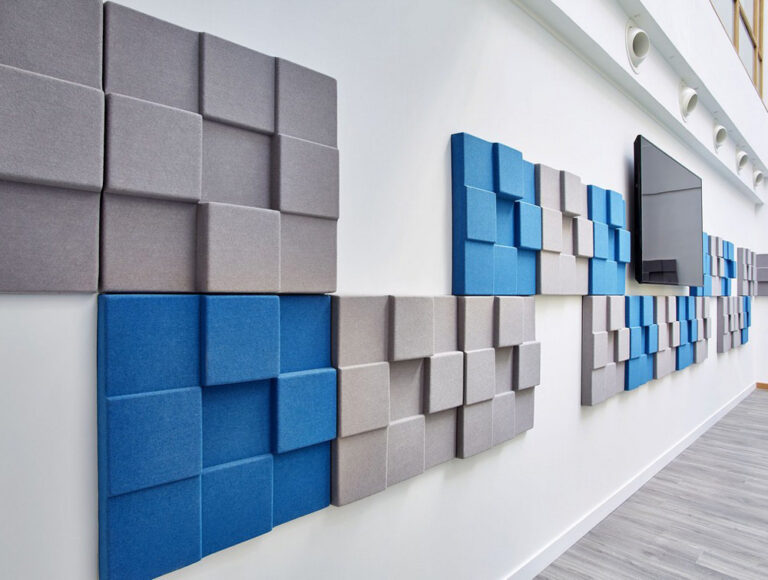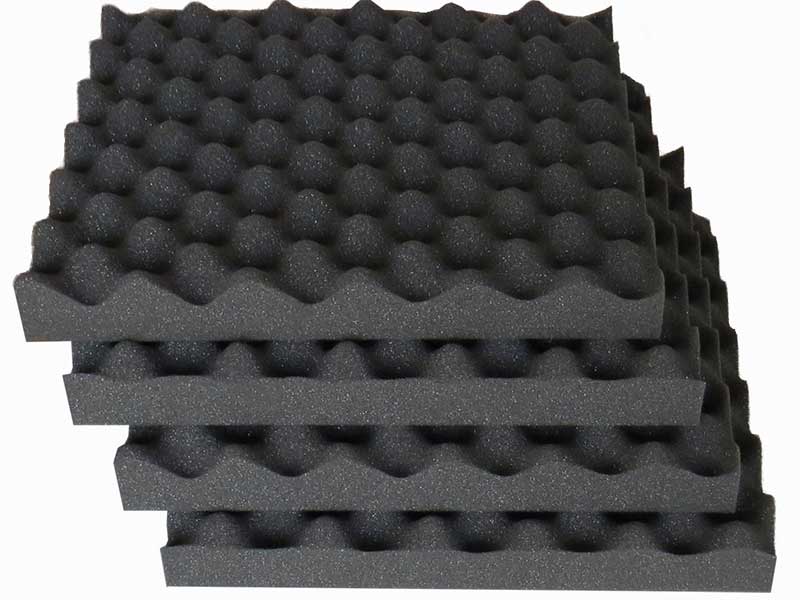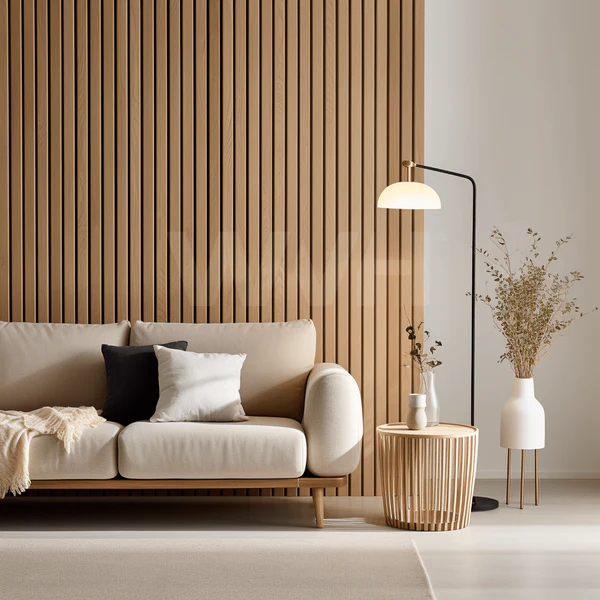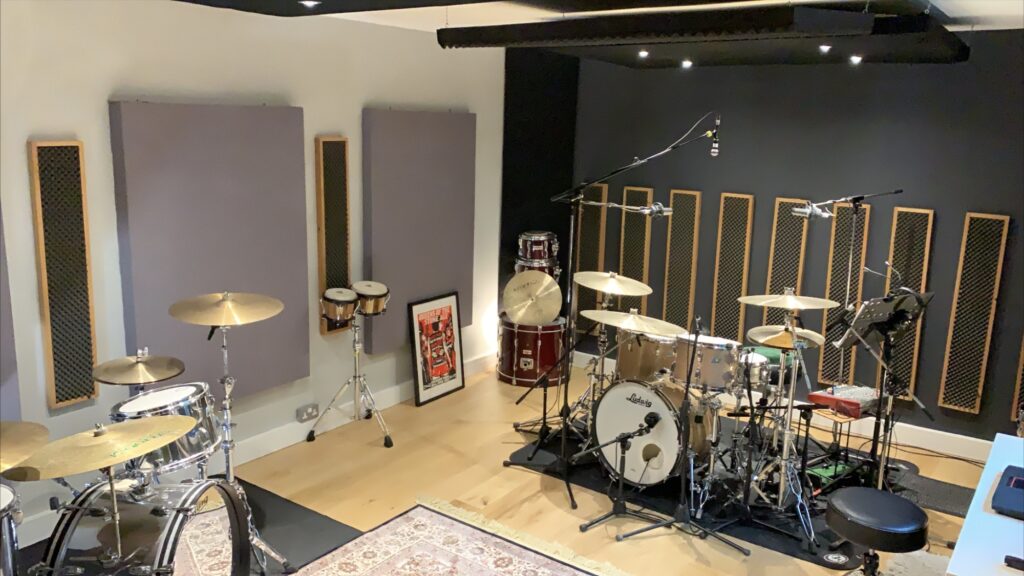Acoustic panels are essential tools in controlling sound within a space. Whether it’s a recording studio, home theater, office, or restaurant, managing sound quality is crucial for comfort and functionality. Acoustic panels come in various types, each designed to address specific acoustic needs. In this article, we’ll delve into the 4 different types of acoustic panels available in the market, their features, and their applications.
4 Types of Acoustic Panels
1. Fabric-Wrapped Panels:
Fabric-wrapped panels are among the most common types of acoustic panels. These panels consist of a sound-absorbing core material, such as fiberglass or foam, wrapped in fabric. The fabric covering not only enhances aesthetics but also allows sound to penetrate the panel, where it’s absorbed by the core material.

Fabric-wrapped panels are versatile and can be customized in terms of size, shape, and fabric type to match the décor of any space.
Applications:
Fabric-wrapped panels are suitable for various environments, including home theaters, conference rooms, auditoriums, and recording studios.
2. Foam Panels:
Foam panels are lightweight acoustic panels made from polyurethane foam. These panels are known for their ease of installation and affordability. Foam panels are available in different thicknesses and densities, providing varying degrees of sound absorption. While they are effective at absorbing high-frequency sounds, they may be less effective at controlling lower frequencies compared to other types of panels.

Applications:
Foam panels are commonly used in home studios, vocal booths, and other areas where controlling mid to high-frequency reflections is the primary concern.
3. Wood Panels:
Wood panels combine aesthetics with acoustic functionality. These panels feature a wooden surface with a sound-absorbing core material, such as fiberglass or foam, concealed behind. Wood panels not only absorb sound but also add warmth and texture to a space. They are available in various wood finishes, allowing for seamless integration with existing décor.

Applications:
Wood panels are suitable for spaces where both acoustic performance and visual appeal are important, such as conference rooms, restaurants, and home theaters.
4. Diffuser Panels:
While most acoustic panels focus on absorbing sound, diffuser panels work by scattering sound waves. These panels feature geometric patterns or irregular surfaces that break up sound reflections, preventing the buildup of standing waves and flutter echoes. Diffuser panels are particularly useful in rooms where maintaining a sense of spaciousness and clarity is essential.

Applications:
Diffuser panels are commonly used in music production studios, performance venues, and listening rooms to create a balanced acoustic environment.
Conclusion:
Selecting the right type of acoustic panels is crucial for achieving optimal sound quality and comfort in any environment. By understanding the features and applications of different types of panels, individuals and businesses can make informed decisions to create acoustically pleasing spaces tailored to their specific needs.
FAQs
Can I install acoustic panels myself?
Yes, many acoustic panels are designed for easy installation and can be mounted using simple tools. However, for optimal results, it’s recommended to consult with an acoustics professional or follow manufacturer guidelines closely.
How do I determine the number of acoustic panels needed for my space
The number of panels required depends on various factors, including the size of the room, its usage, existing acoustic conditions, and personal preferences. Acoustic consultants can conduct acoustic assessments to determine the optimal placement and quantity of panels.
Are acoustic panels fire-resistant?
Many acoustic panels are available with fire-resistant properties, making them suitable for use in commercial and public spaces. It’s essential to check product specifications and certifications to ensure compliance with fire safety regulations.
Do acoustic panels completely eliminate sound?
While acoustic panels are effective at reducing reverberation and controlling sound reflections, they may not completely eliminate all sound. The extent of sound reduction depends on factors such as panel type, thickness, placement, and the nature of the sound source.
Can acoustic panels be customized to match specific design requirements?
Yes, many manufacturers offer customization options for acoustic panels, including choice of fabric, size, shape, and finish. This allows for seamless integration with existing décor and architectural elements.




